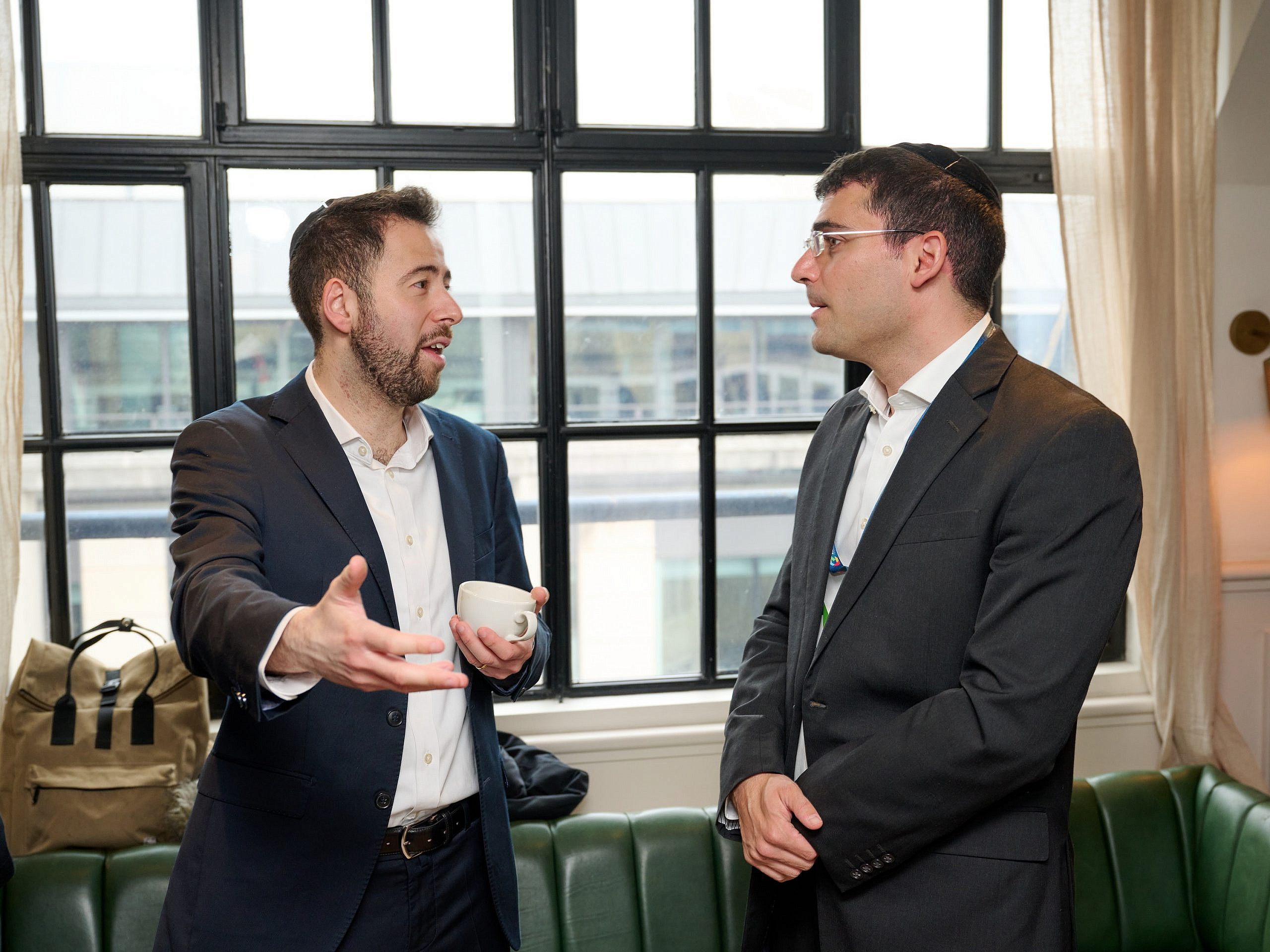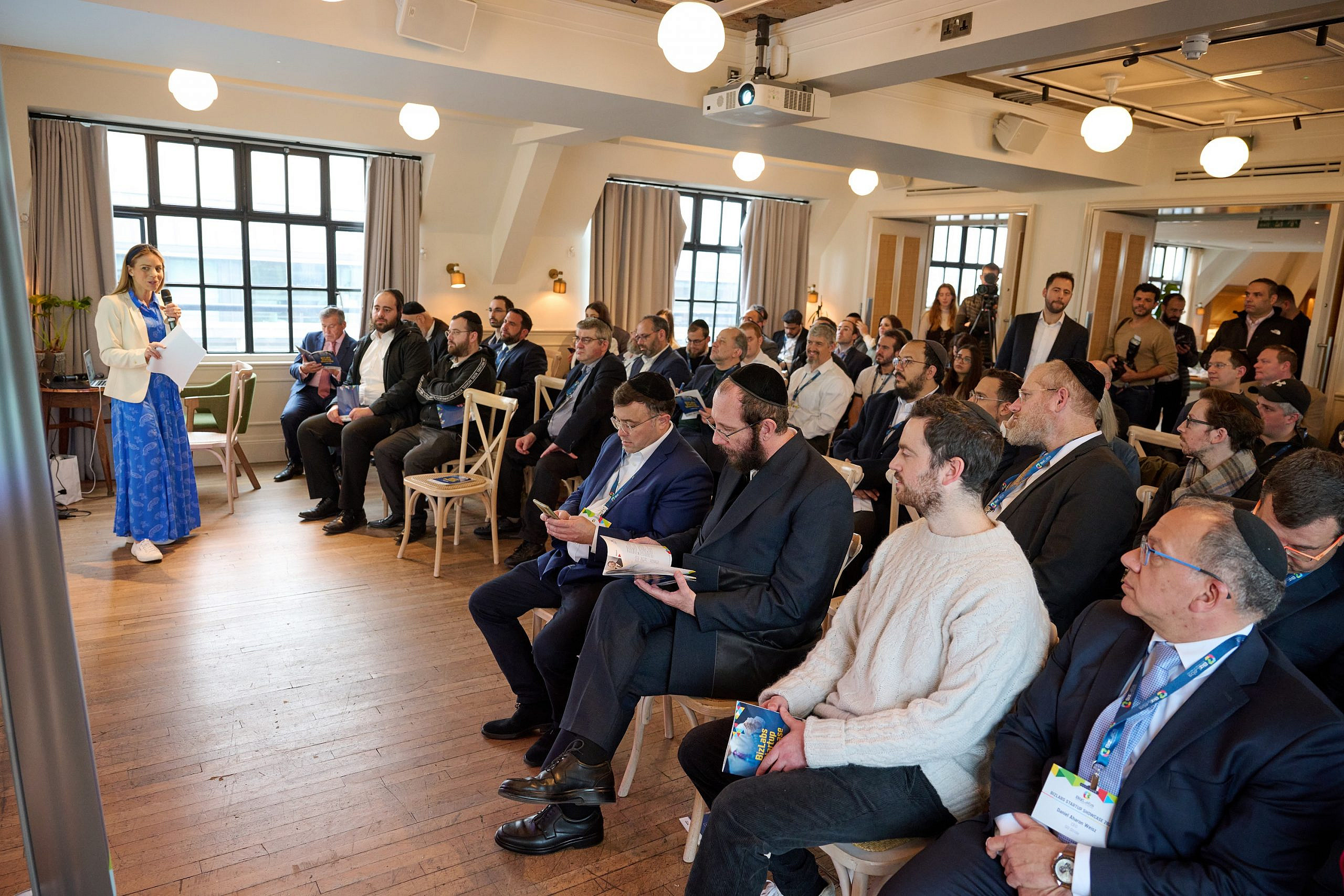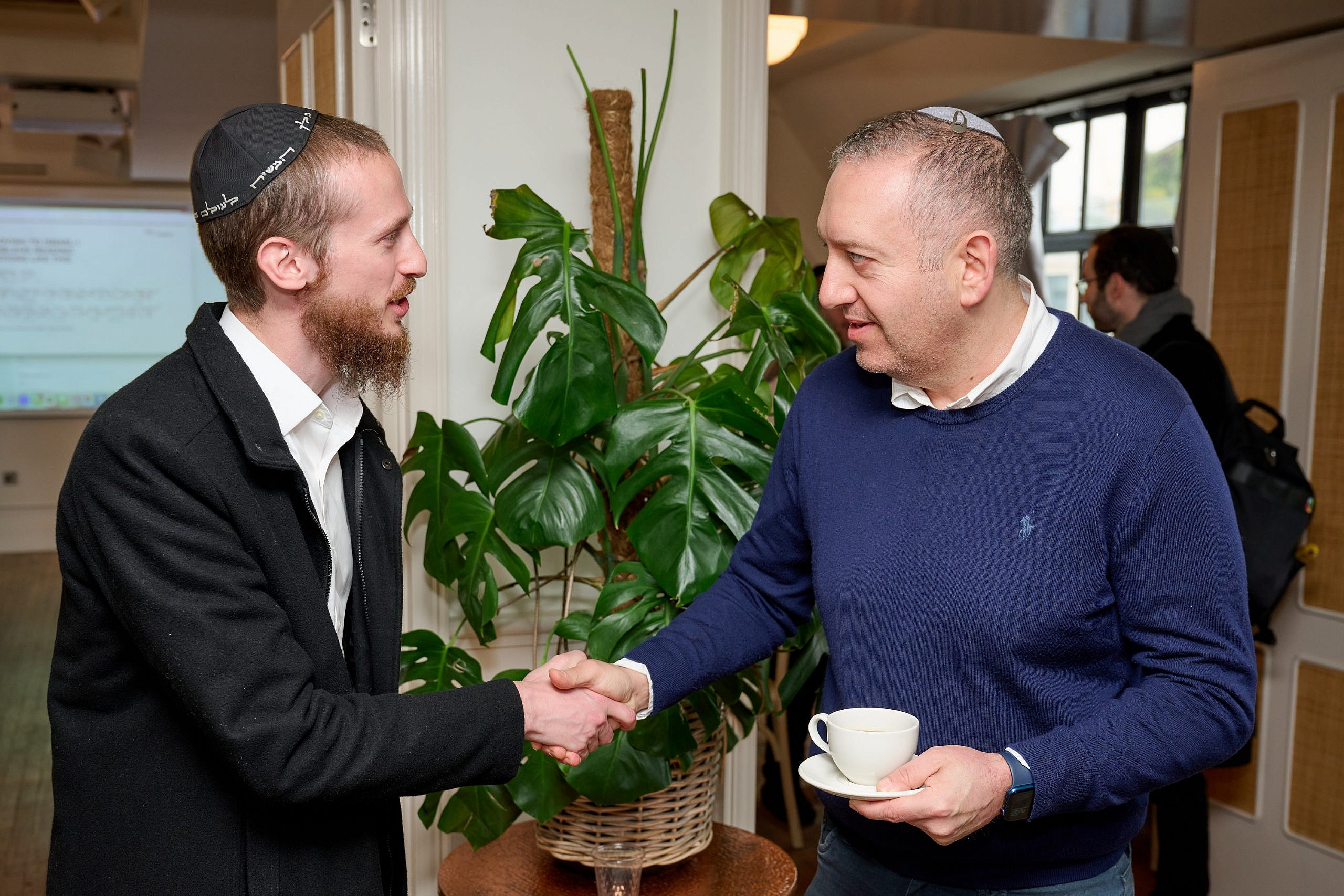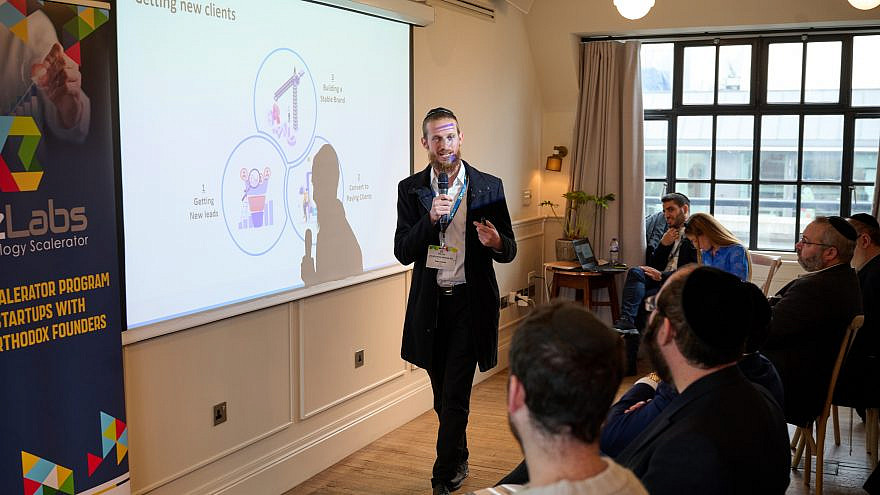Participants talked shop over coffee and catered meals, exchanged business cards and heard presentations on new companies and the problems they aim to solve during the daylong program. But this gathering of technology entrepreneurs was anything but humdrum. For one thing, the food was strictly kosher, and many wore kippahs, tzitzit, beards and side curls.
On March 20, the Israeli innovation firm Bizmax held a “scalerator” event at Mortimer House—a members club in London’s Fitzrovia district—marking the midpoint of its six-month Bizlabs program to “scale up” between six and nine startups run by Israeli haredi entrepreneurs.
“We felt that the haredim were not performing as they should be within Israeli society,” Leo Noe, founder of the Kemach Foundation, said in his opening remarks.
There seems to be a “lack of tolerance” in different parts of Israeli society, whether religious or secular, left or right, according to Noe, whose foundation Kemach cosponsors the program with the Achim Global Foundation and the Jerusalem Development Authority, an Israeli government and Jerusalem Municipality joint agency.
“I hope that in the same spirit of us starting this program, everyone can be tolerant and do what is right,” he told attendees.
The event comes at a time when analysts say that work is becoming more mainstream for Israeli haredim. Last June, the Knesset’s Committee on Jewish Religious Services heard a special report on haredim in the workforce. Haredim make up about 8% of the Israeli workforce and are projected to reach 26% by 2065. About 50% of haredi men were employed as of the end of the first quarter of 2022, per the report.
“Integration of haredim in the workforce is an existential need for the country. We have to stop talking in terms of ‘them’ and ‘us,’ ” Yulia Malinovsky, chair of the committee, said at the time. “It’s our society and our country. We’re in the same boat, and we have to act together in order to fulfill the goal of encouraging employment in the haredi sector.”

‘At the forefront of a new wave’
The March 20 event in London is part of a program that aims to promote technology work to ultra-Orthodox Israelis while respecting their societal norms.
Many startups have come to Bizlabs for advice over the past eight years, Yitzik Crombie, Bizmax co-founder who is Chabad, told JNS.
“First, we thought the problem was money, but we soon realized it made sense to focus on helping haredi startups with training and skills,” he said. “We take firms that already have at least $200,000 in funding and help them scale up to the next stage.”
The 47 companies that Bizmax has mentored through its Bizlabs program have collectively raised $45 million, according to Crombie. The startups featured at the recent event “are at the forefront of the new wave of ultra-Orthodox high-tech innovation in Israel,” he added.
Haredi men only earn 55% of the average Israeli salary, Crombie told JNS. “That this community, with a very specific way of life, will be Israel’s majority within decades, is the main challenge for our country,” he said. “We fight about a lot of things in Israel but this is something we need to think hard about.”
Rachel Wagner Rosenzweig, vice president of Bizlabs, touted the group’s results in a conversation with JNS. A year after completing the program, 89% of startups that work with Bizlabs remain active, she said. (A year is considered a long time for entrepreneurial ventures, particularly in the technology sector.)
“Developing the ultra-Orthodox economy is the most important factor in the success of Israel in the future,” she said.
Shuli Segal Zlotsky is the CEO of Same Side, a startup that matches families of ill children with quality treatments. Participating in the London event and the program connected her with “amazing” mentors—“ones I would never have had access to just by myself,” she told JNS.
“I have professionally observed hundreds of medical crowdfunding cases, and I see families struggle to understand how best to help their children,” said Segal Zlotsky. “My company is focusing on these cases, but we plan to expand to help seriously ill adults in the future, too.”
The 26-year-old reported that she has worked since 13 and opened her company at 20. She now oversees 27 people—all of them religious women—who speak a combined 11 languages.
Ruchama Kahaneman, CEO of the public-relations startup about.me, also praised the program in an interview with JNS.
“I have worked with people from all walks of life, religious and non-religious, and it has been a great experience,” she said. “I do think it is really necessary to have a program that focuses on helping ultra-Orthodox businesses.”

‘See if our idea can work internationally’
Yoel Peretz, CEO of Snapit, dreams of his company becoming “the next Spotify of photos,” he told JNS. He thinks he is well on his way after joining the Bizlabs program.
“At weddings, we use facial-recognition technology to send personalized photos to each guest that appears in them,” he said. “Everyone knows that finding and choosing photos in these situations is tedious and time-consuming. Our process allows people to receive the correct photos in just seconds.”
Peretz believes that Israel, as a small market, presents an instructive litmus test to see if a company and its services or products are valuable. “This Bizlabs trip to the U.K. is a great opportunity to see if our idea can work internationally,” he said.
The program helps entrepreneurs act as role models to ultra-Orthodox peers. “We can help build our own and others’ confidence in this industry and even create a community of startups. In this way we can make more money, pay more taxes and the whole system will be much better,” he said.
“You can’t force change,” said Peretz, “but by giving people a helping hand, we can inspire more people to get into business and help themselves and the community.”



























